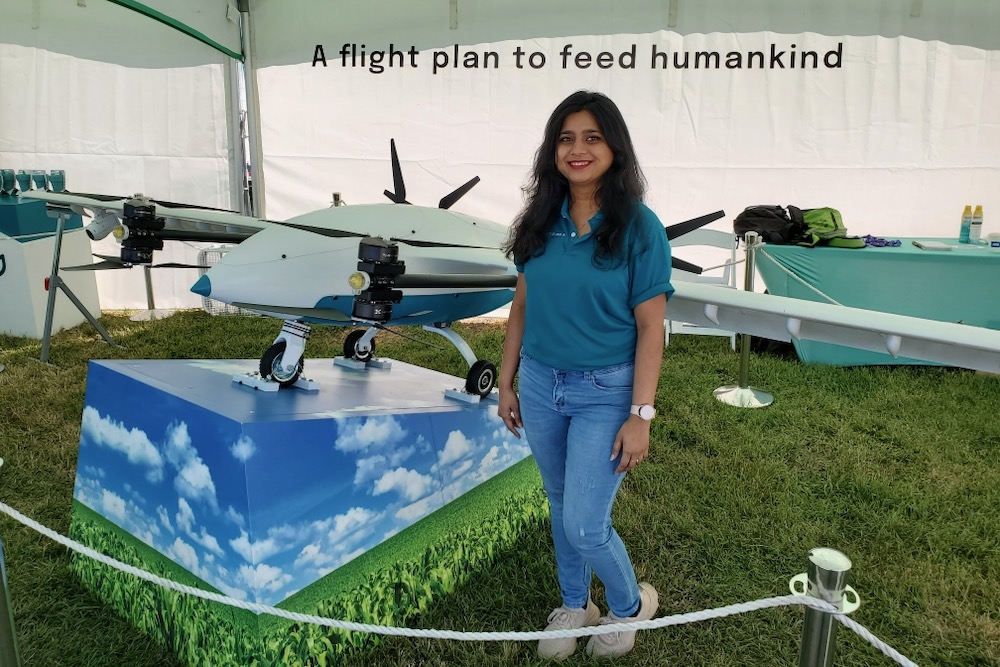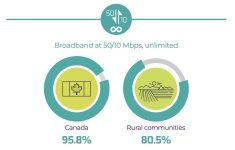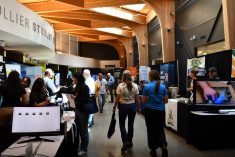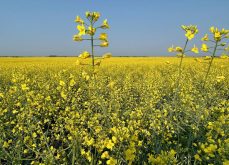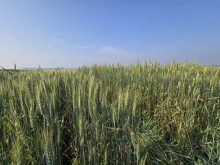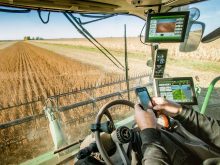With innovations ranging from drones that recognize and spray weeds on the fly, to the latest in worm dung, AgSmart is securing its reputation as one of Canada’s top agriculture events.
Nearly 3,000 people attended the latest event Aug. 9-10 that highlights work being done at Olds College’s Smart Farm. It focused on agriculture technology and the use of data to enhance farm productivity and profitability.
Adopting new technology can be daunting because of the cost and learning curve, but AgSmart is designed for all farmers, said event co-manager Stacy Felkar.
Read Also

‘Millions will die’: Foodgrains Bank faces $2.7B federal funding threat
Foodgrains Bank warns $2.7B aid cut triggers a humanitarian crisis, risking global hunger relief and 40 per cent of its funding.
“It doesn’t matter if you are an early adopter or someone who’s interested in starting to learn about what you can use on your farm, there’s something for everyone,” she said. “It can be the simple things that can take you to the next level of your operation.”
Felkar said she was happy with this year’s turnout (the official count was 2,880 attendees) given AgSmart became a virtual event in 2020 due to the pandemic. In response, organizers launched and have kept the Digital Ag Tech Directory, which offers educational features and ag tech offers for producers.
AgSmart Theatre was also launched, providing additional ag tech education. An in-person event was held last year but attendance was restricted and it drew about 2,000 people.
“It definitely feels amazing to be back and to be able to produce our third edition in a live full event format,” said Felkar, noting AgSmart is still relatively new and people are still finding out about it.
“I’d say if you’re someone who is interested in the technology and data side of the industry and how to take those opportunities and to use them to improve profitability and sustainability of your farm, you won’t want to miss out for next year.”
This year’s event featured 50 learning sessions from industry experts covering a variety of topics, from how to transition a traditional farm using data and technology to the return on investment for autonomous equipment. It was also an opportunity to see what’s been studied at the Smart Farm and the college’s Technology Access Centre for Livestock Production on topics such as variable rate fertilizing and virtual fencing.
There were plenty of drones, including the world’s first drone spot sprayer that uses artificial intelligence to differentiate between what’s a crop and what’s not. That’s a tough challenge when flying at speeds that can reach 70 km/h but the $100,000 military-like autonomous aircraft is up to the job, said an official with the company that developed it.
“Our drone flies two metres over a field and it’s able to detect the crop and the weeds,” said Jannatul Mourey, an engineer and project architect with Precision AI.
“Our main target is reducing chemical use. Currently most weed spraying is broadcast. It doesn’t detect the weed. Our drone has two cameras, so it scans the field and wherever there is a weed, it will spray using a particular nozzle.”
There were many young ag professionals at the event, and that’s a promising sign for the future of Alberta agriculture, said Felkar, adding organizers are focused on innovation and the event will evolve in coming years.
“It’s very refreshing and exciting to see the level of engagement,” she said. “We don’t have all the data run yet, but last year our attendee average age trended about six and a half years younger than the national average age of farmers.
“So, it shows there’s a lot of interest in that segment of the industry and it’s quite exciting to see because these are the future farmers.”

